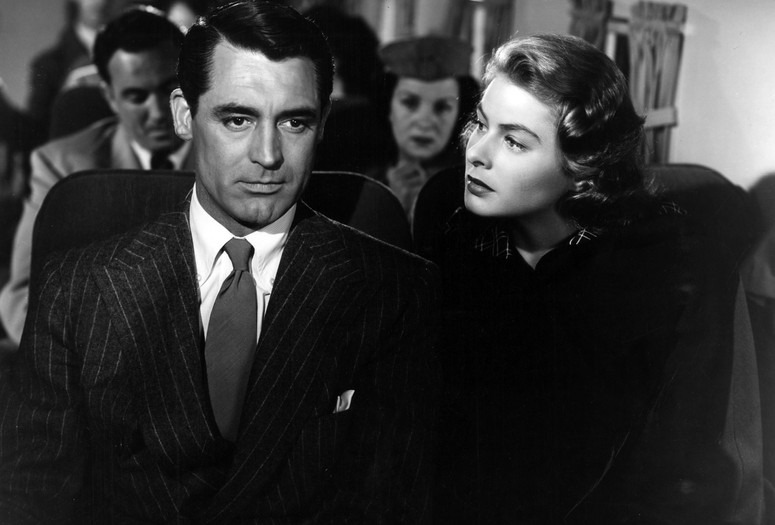Notorious (1946)

Alfred Hitchcock’s “Notorious,” released in 1946, stands as a quintessential example of the director’s mastery in blending suspense, romance, and intrigue. Set in the aftermath of World War II, the film explores themes of espionage, betrayal, and moral ambiguity against the backdrop of post-war tensions and the looming specter of Nazism.
The plot centers on Alicia Huberman (played by Ingrid Bergman), the daughter of a convicted German spy, who is enlisted by American intelligence agent T.R. Devlin (played by Cary Grant) to infiltrate a group of Nazis hiding out in South America. Alicia, initially portrayed as a disillusioned party girl, finds herself embroiled in a dangerous game of espionage that tests her loyalties and personal integrity.
Central to the film’s intrigue is Alicia’s complex relationship with Devlin, a suave and enigmatic agent who becomes both her handler and romantic interest. Their dynamic is fraught with tension and ambiguity, as Devlin wrestles with his growing feelings for Alicia while remaining distant and aloof—a conflict that mirrors the broader themes of trust and betrayal explored throughout the narrative.

Hitchcock employs his trademark suspense techniques to heighten the tension throughout “Notorious.” The use of long takes and close-ups intensifies the emotional and psychological drama, particularly in key scenes such as the celebrated extended kiss between Alicia and Devlin, which serves as a pivotal moment of emotional revelation and conflict.
Ingrid Bergman delivers a standout performance as Alicia, imbuing her character with vulnerability, intelligence, and a profound sense of inner conflict. Her portrayal captures the evolution of Alicia from a cynical and self-destructive woman into a courageous and determined heroine who risks everything for love and redemption.

Cary Grant, in turn, embodies the role of Devlin with his characteristic charm and complexity. His portrayal of the conflicted intelligence agent adds layers of ambiguity to the character, as Devlin navigates the ethical dilemmas of espionage and his conflicting feelings towards Alicia.
Thematically, “Notorious” explores the moral complexities of espionage and the sacrifices made in the pursuit of justice and national security. The film challenges conventional notions of heroism and patriotism, depicting characters who operate in shades of gray rather than black and white. The portrayal of the Nazis as a lingering threat in the post-war world underscores the film’s exploration of unresolved trauma and the specter of evil that continues to haunt society.

Visually, Hitchcock’s direction is masterful, with the use of intricate set designs and atmospheric lighting contributing to the film’s noir aesthetic. The iconic sequence involving a poisoned cup of coffee at a party hosted by the film’s antagonist, Alexander Sebastian (played by Claude Rains), is a testament to Hitchcock’s ability to build suspense through meticulous attention to detail and suspenseful pacing.
In conclusion, “Notorious” remains a timeless classic that exemplifies Alfred Hitchcock’s unparalleled skill in crafting suspenseful narratives that resonate on multiple levels. With its compelling performances, complex characters, and thematic depth, the film continues to captivate audiences and critics alike, solidifying its place as a landmark achievement in cinematic history.











